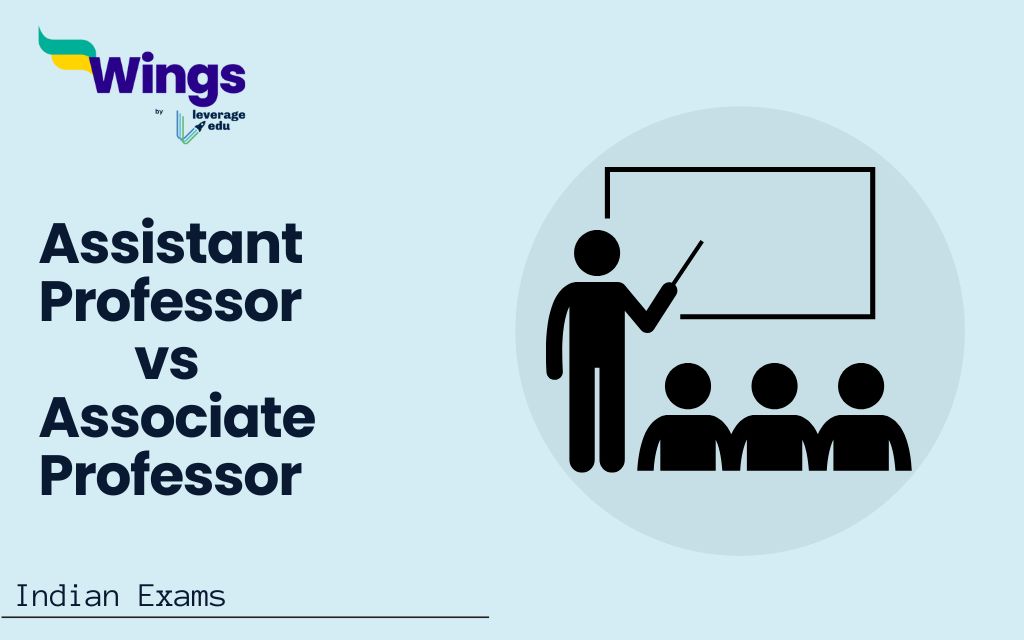The hierarchy and job titles of every professor distinguish them from one another. While some are assistant professors who are entry-level professors, others are associate professors or mid-level faculty of colleges and universities after gaining substantial years of experience. Apart from the primary job of teaching, an Assistant Professor and an Associate Professor vary on several parameters such as eligibility criteria, salary, and qualifications. To know more about this, you can read the given article.
Who is an Assistant Professor?
In simple terms, an Assistant Professor is the entry–level or junior faculty member of any college or university. They usually hold an MPhil or PhD degree and have a good amount of experience in research and teaching in their specific area of expertise. Assistant professors are not tenured, but they still possess all the duties of a tenured professor.
They are appointed either on a “non-tenure or temporary” basis and hired for 1 to 3 years, or as “tenure track” faculty who get the opportunity for permanent position only after 5 to 7 years. Typically, they assist in creating lesson plans and evaluate students’ progress by supervising their tests and projects.
Additionally, an assistant professor’s job structure may also include:
- Giving lectures in classes and organizing conferences regarding program studies and related topics.
- Developing proper coursework of subjects for the students.
- Answering queries and questions of the students to improve their understanding and knowledge of the subject.
- Evaluating assessments and projects of the students.
- Publishing papers and reports.
- Assisting the college administration in making important decisions.
Assistant Professor Qualifications: Assistant professors require a master’s degree to start their career in teaching. However, there is a proper educational structure one must follow to become an assistant professor.
- Bachelor’s degree- To earn a master’s degree and further a doctoral degree, candidates must first graduate from a bachelor’s degree program. As an aspiring assistant professor, a candidate’s grade in their bachelor’s is very important as it will determine their entry into the master’s program and their future career as an assistant professor.
- Master’s degree- After completing their bachelor’s, candidates need to choose a subject for master’s study and earn a master’s degree. Once done, aspiring students may go for a PhD program or doctoral study in the area of their expertise.
- Doctoral study or PhD- Though the essential qualification an assistant professor need is a master’s degree; there are many universities and colleges that prefer assistant professors to have a PhD. Earning a doctoral degree demands extensive coursework and research, as well as proper completion of a project or dissertation.
- Work experience- While pursuing a PhD, it is also significant to have good work experience. Apart from their dissertation, they should also try and publish research reports regarding their subject to showcase their skills and knowledge. They may also apply for internships and part-time lectures to grow their experience at the college level.
Assistant Professor vs. Associate Professor
When planning one’s career in postsecondary teaching, it is very decisive to understand the basic differences between Assistant vs. Associate Professor. One of the key differences between the two is that associate professors are much more experienced than assistant professors and receive more salary and recognition.
Unlike assistant professors who only command undergraduate students during class hours, associate professors instruct graduate students in their research and also after finishing assistantships.
To get a better understanding of the differences between assistant professor and associate professor, take a look at the below-mentioned table:
| Parameters | Assistant Professors | Associate Professors |
| Eligibility | Master’s degree in the concerned discipline from an Indian university.Minimum 55% in postgraduationEquivalent degree from an accredited international university.SLET/SET qualified with NET. | Good academic records. PhD degree.Master’s degree with at least 55% marks. |
| Qualification | Professional experience in teaching or research.Research papers presented to the committee or in appropriate journals. | Minimum 8 years of experience in teaching in a university or college.Research in an academic subject.Evidence of any published research, policy papers or books.A minimum score as stated in the API (Academic Performance Indicator) set out in the UGC regulation. |
| Courses | Master’s in Science, Arts or Commerce. | PhD in Science, Arts or Commerce. |
| Job Profile | Teaching Conducting Research Assisting full professors Working with the university committee | Teaching Conducting seminars and research.Working with teaching assistants.Undertaking crucial administrative tasks. |
| Area of Work | EducationPrivate and Government | EducationPrivate and Government |
| Average salary | INR 4,11,540 LPA | INR 9,00,000 LPA |
Related Blogs
| Easiest Government Exams to Crack in India | Top 10 Toughest Exams in India |
| RBI Assistant Exam | How to become a Loco Pilot? |
| All About Teaching-Learning Material | PSC Exams |
| Essay on Democracy | Timeline of the Indian National Movement |
FAQs
Associate Professor! It’s a mid-career position with tenure (job security) often earned through promotion from Assistant Professor (entry-level).
Both teach and research, but Assistant Professors might have a heavier teaching load while building their research careers. Associate Professors may have more say in the curriculum and mentor graduate students.
Usually by getting tenure as an Assistant Professor, but some institutions might hire directly for this rank with a strong research background.
This was all about the “Assistant Professor vs Associate Professor”. For more such informative blogs, check out our Teaching Exams Section, or you can learn more about us by visiting our Indian exams page.


 One app for all your study abroad needs
One app for all your study abroad needs












 60,000+ students trusted us with their dreams. Take the first step today!
60,000+ students trusted us with their dreams. Take the first step today!